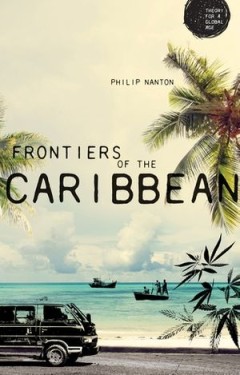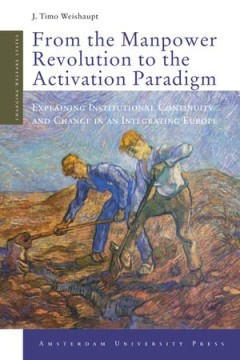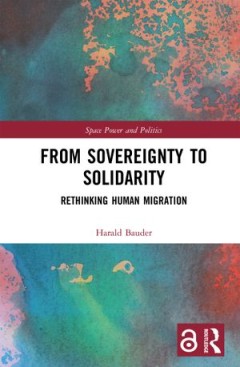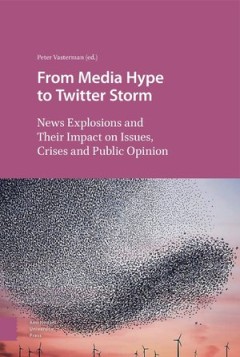Filter by

Für ein Europa der Übergänge Interkulturalität und Mehrsprachigkeit in e…
Europa kann neu gedacht werden: nicht von den Grenzen und Leitdifferenzen her, sondern von den Übergängen. Die aus vier Kontinenten stammenden Beiträgerinnen und Beiträger befassen sich mit der Frage, inwiefern die Fähigkeit, ästhetische, sprachliche und kulturelle Übergänge angesichts hoher Heterogenität hervorzubringen, Europa am ehesten ausmacht. Von Fatou Diome bis Yoko Tawada, von…
- Edition
- -
- ISBN/ISSN
- 9783839461570
- Collation
- -
- Series Title
- -
- Call Number
- -

The Funeral of Mr. Wang Life, Death, and Ghosts in Urbanizing China
A free open access ebook is available upon publication. Learn more at www.luminosoa.org. In rural China funerals are conducted locally, on village land by village elders. But in urban areas, people have neither land for burials nor elder relatives to conduct funerals. Chinese urbanization, which has increased drastically in recent decades, involves the creation of cemeteries, state-run funeral …
- Edition
- -
- ISBN/ISSN
- 0520381998, 9780520381995
- Collation
- -
- Series Title
- -
- Call Number
- -

Frontiers of the Caribbean
The book argues that the frontier, usually associated with the era of colonial conquest, has great, continuing and under explored relevance to the Caribbean region. Identifying the frontier as a moral, ideational and physical boundary between what is imagined as civilization and wilderness, the book seeks to extend frontier analysis by focusing on the Eastern Caribbean multi island state of St.…
- Edition
- -
- ISBN/ISSN
- -
- Collation
- -
- Series Title
- -
- Call Number
- -

From War to the Rule of Law
As recent events in Iraq demonstrate, countries that have suffered civil war or rule by military regime can face a long, difficult transition to peaceful democracy. Drawing on the experiences of Bosnia, Haiti, Rwanda and Afghanistan, this outstanding volume demonstrates that newly emerging democracies need more than emergency economic support: restoring the rule of law can involve the training …
- Edition
- -
- ISBN/ISSN
- -
- Collation
- -
- Series Title
- -
- Call Number
- -

From the Manpower Revolution to the Activation Paradigm
This book examines the origins and evolution of labor market policy in Western Europe, while paying close attention to the oeCD and the European Union as proliferators of new ideas. Three phases are identified: (a) a manpower revolution phase during the 1960s and 1970s, when most European governments emulated Swedish manpower policies and introduced/modernized their public employment services; …
- Edition
- -
- ISBN/ISSN
- -
- Collation
- -
- Series Title
- -
- Call Number
- -

From Sovereignty to Solidarity Rethinking Human Migration
From Sovereignty to Solidarity seeks to re-imagine human mobility in ways that are de-linked from national sovereignty. Using examples from around the world, the author examines contemporary practices of solidarity to illustrate what such a conceptualization of human mobility looks like. He suggests that urban and local scales, rather than the national scale, is a better way to frame human migr…
- Edition
- -
- ISBN/ISSN
- -
- Collation
- -
- Series Title
- -
- Call Number
- -

From Seascapes of Extinction to Seascapes of Confidence
From Seascapes of extinction to seascapes of confidence. Territorial Use Rights in Fisheries in Chile: El Quisco and Puerto Oscuro by Gloria Gallardo Fernandés is an important contribution to our understanding of the multifaceted challenges underlying sustainable solutions to ecological fisheries, the book describes how, in Chile, indiscriminate harvest of the edible shellfish Concholepas co…
- Edition
- -
- ISBN/ISSN
- 9781315159829
- Collation
- -
- Series Title
- -
- Call Number
- -

From Media Hype to Twitter Storm News Explosions and Their Impact on Issues,…
The word media hype is often used as rhetorical argument to dismiss waves of media attention as overblown, disproportional and exaggerated. But these explosive news waves, as well as - nowadays - the twitter storms, are object of scientific research, because they are an important phenomenon in the public area. Sometimes it is indeed 'much ado about nothing' but in many cases these media storms …
- Edition
- -
- ISBN/ISSN
- -
- Collation
- -
- Series Title
- -
- Call Number
- -

Geography, Power, Strategy And Defence Policy
Paul Dibb AM has had an extraordinary career. He enjoys an international scholarly reputation of the highest order, while at the same time he has done much distinguished public service. He was a pioneer in moving back and forth between posts in government departments, notably the Department of Defence, and academia. He began as a student of Soviet economic geography, and then spent nearly two d…
- Edition
- -
- ISBN/ISSN
- 9781760460136
- Collation
- -
- Series Title
- -
- Call Number
- -

Following The Water
Water reflects culture. This book is a detailed analysis of hydrological change in Australia’s largest inland waterway in Australia, the Gippsland Lakes in Victoria, in the first 70 years of white settlement. Following air, water is our primal need. Unlike many histories, this book looks at the entire hydrological cycle in one place, rather than focusing on one bit. Deftly weaving threads fro…
- Edition
- -
- ISBN/ISSN
- 9781760462840
- Collation
- -
- Series Title
- -
- Call Number
- -
 Computer Science, Information & General Works
Computer Science, Information & General Works  Philosophy & Psychology
Philosophy & Psychology  Religion
Religion  Social Sciences
Social Sciences  Language
Language  Pure Science
Pure Science  Applied Sciences
Applied Sciences  Art & Recreation
Art & Recreation  Literature
Literature  History & Geography
History & Geography